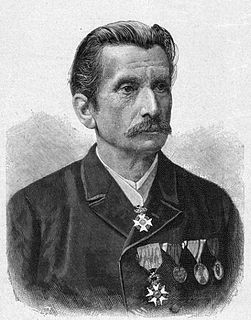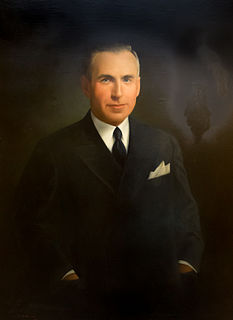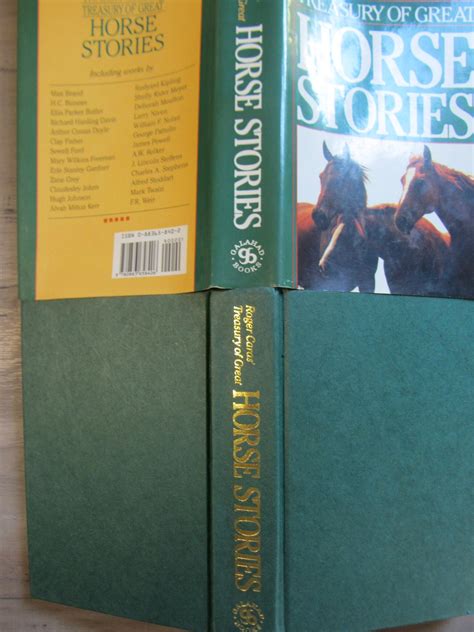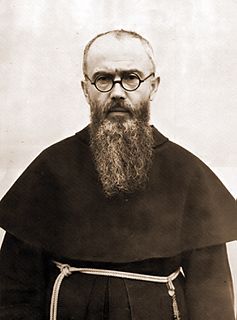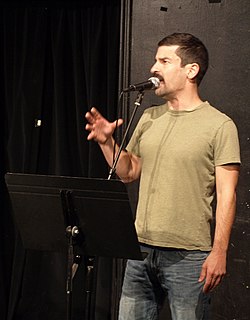A Quote by Bill Watterson
I think most of us would be horrified to meet ourselves and discover what everyone else already knows about us.
Related Quotes
Love knows no virtue, no profit; it loves and forgives and suffers everything, because it must. It is not our judgment that leads us; it is neither the advantages nor the faults which we discover, that make us abandon ourselves, or that repel us. It is a sweet, soft, enigmatic power that drives us on. We cease to think, to feel, to will; we let ourselves be carried away by it, and ask not whither?
That which you or I think is most unique about ourselves we hide. In ordinary discourse, in the normal state, we share our common self, our superficial self. Yet what is most unique about us is what has the greatest potential for bonding us. When we share our uniqueness, we discover the commonality in greatness that defines everyone on the planet.
Cats make one of the most satisfying sounds in the world: they purr. [...] Almost all cats make us feel good about ourselves because they let us know they feel good about us, about themselves, and about our relationship with them. A purring cat is a form of high praise, like a gold star on a test paper. It is a reinforcement of soemthing we would all like to believe about ourselves -- that we are nice.
In modern society most of us don't want to be in touch with ourselves; we want to be in touch with other things like religion, sports, politics, a book - we want to forget ourselves. Anytime we have leisure, we want to invite something else to enter us, opening ourselves to the television and telling the television to come and colonize us.
Love is a way of seeing and a way of being that honors God in everyone we meet. And it changes us in the most fundamental way. All we need to do is welcome the challenge of our relationships, training our eyes to look beyond human behavior to the Presence within. When we seek to live love, we discover through our interactions with others the divinity within ourselves.
Let us give ourselves to the Immaculata [Mary]. Let her prepare us, let her receive Him [Jesus] in Holy Communion. This is the manner most perfect and pleasing to the Lord Jesus and brings great fruit to us." Because "the Immaculata knows the secret, how to unite ourselves totally with the heart of the Lord Jesus... We do not limit ourselves in love. We want to love the Lord Jesus with her heart, or rather that she would love the Lord with our heart.
There is in us an instinct for newness, for renewal, for a liberation of creative power. We seek to awaken in ourselves a force which really changes our lives from within. And yet the same instinct tells us that this change is a recovery of that which is deepest, most original, most personal in ourselves. To be born again is not to become somebody else, but to become ourselves.
He is not far off; He is there, very close. He is looking at us, and He is begging this sorrow, this agony from us. He needs it for souls and for our soul... Alas, it does pain Him to give us sorrows to drink, but He knows this is the only means of preparing us to know Him as He knows Himself and to become God's ourselves.
I have this idea that every time we discover that the names we're being called are somehow keeping us less than free, we need to come up with new names for ourselves, and that the names we give ourselves must no longer reflect a fear of being labeled outsiders, must no longer bind us to a system that would rather see us dead.
We think that by protecting ourselves from suffering, we are being kind to ourselves. The truth is we only become more fearful, more hardened and more alienated. We experience ourselves as being separate from the whole. This separateness becomes like a prison for us - a prison that restricts us to our personal hopes and fears, and to caring only for the people nearest to us. Curiously enough, if we primarily try to shield ourselves from discomfort, we suffer. Yet, when we don't close off, when we let our hearts break, we discover our kinship with all beings.
I never lied to you. (Kiara) Of course you did –you said you could see the real us– that we weren’t as bad as we claimed. But you didn’t and, just like everyone else, so long as we risk our lives to protect and save you, we’re okay. But the moment we have to make a choice not ours, the moment you see what our pasts have made us, you’re horrified by the truth and hate us for it like we had some kind of choice in what we are. (Syn)
We think in youth that our bodies are identical to ourselves and have the same interests, but discover later in life that they are heartless companions who have been accidentally yoked with us, and who are as likely as not, in our extreme sickness or old age, to treat us with less mercy than we would have received at the hands of the worst bandits.
When I talk about the God who is with us, for us, and ahead of us, I'm talking about our facing that which most terrifies us about ourselves, embracing it and fearing it no longer, refusing to allow it to exist separate from the rest of our being, resting assured that we are loved and we belong and we are going to be just fine.

